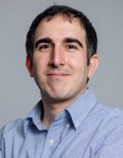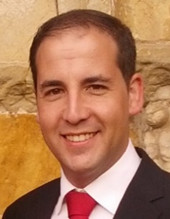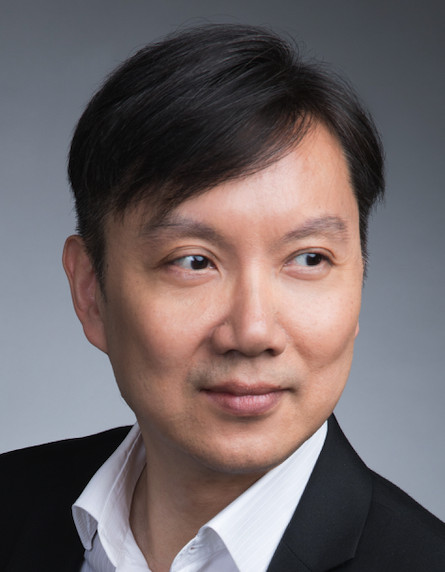Description
Nowadays, data is becoming the new fuel for economic wealth and creation of novel and profitable business models. However, for an economy of data to actually flourish there are still several critical challenges that have to be overcome. This track explores some of the key aspects of computing and information processing that are being used to address these challenges together with experts from academia and industry.
On the one hand, among the multitude of technologies that are contributing to an abundance of information sources which are already the baseline for multi-millionaire services and applications, the Internet of things (IoT) enables collecting large amounts of data from various sensors, devices, and systems. In many real scenarios, information collected in a vertical application in smart cities, smart buildings, smart factors, or shortly “Smart X”, is used by the same vertical application. Moreover, the information might be stored in a raw format or only processed for the purpose of the application. However, situational awareness that can be created through context data is richer as more information sources are used. Heterogeneity is a constant in this scenario. Thus, there must be solutions in place to guarantee the interoperability of the plethora of information sources that can contribute to generate a rich situation awareness that applications can further exploit into optimized decision-making. Moreover, new data sources should be used as they appear allowing dynamic discovery and exchange of data. Together, interoperability and dynamic discoverability fosters competition and innovation in the data economy as users are empowered to seamlessly ‘move’ to a different (typically better) provider.
On the other hand, collected information should go through key information processing and computing for making it valuable and bringing real benefits to the society. In this sense, the value of data comes from the fact that it allows creating situational awareness which can be further used to take optimized decisions. Such situational awareness has, unfailingly, a local nature. The closer (in geographical terms) the information comes from, the most probable it will be valuable for the services and applications consuming it. Thus, making the information to travel all the way back and forward to and from a cloud that is thousands of miles away is, obviously, a waste of resources. Both in network and, indirectly, energy and natural resources terms. Moreover, centralized cloud-based solutions typically suffer from vendor lock-in or siloed data sharing problems which are important barriers for those that are willing to participate in a thriving data economy.
This Topical Track will focus on the paradigm of future connected data ecosystems with advanced information processing steps, which enable use of existing information. These steps include data harmonization, data curation, data linking, data enrichment, and information contextualization. The necessary computing to enable such steps as well as the secure, fair and resource-efficient sharing of this added-value data within a multi-stakeholder ecosystem would leverage high-performance computing through cloud-edge continuum, data-centric infrastructures, and connected data spaces. Furthermore, digital twin technology would enable augmentation of information from real environments and real-time predictions through computational simulations.
In this topical area track, we focus on the advancements as well as challenges of the information processing and computing in the future data ecosystems. In this context, our topics include but are not limited to:
- Data linking and enrichment
- Data contextualization and analytics
- Connected data spaces
- IoT platforms and data spaces/marketplaces
- High-performance computing
- Data-centric infrastructures
- High-performance communication systems
- Cloud-fog-edge computing and continuum
- Digital twin computing
Chairs
Dr.Gurkan Solmaz

Dr. Gürkan Solmaz is a Senior Researcher at NEC Laboratories Europe, Germany. His research interests include AI/ML, mobile computing, and cloud-edge systems for novel internet of things (IoT) applications to smart cities and smart mobility. He received his BS degree in Computer Engineering from Middle East Technical University (METU) in Turkey and his MS and Ph.D. degrees in Computer Science from the University of Central Florida (UCF) in the USA. At NEC, he has contributed to EU research projects in areas such as IoT, cloud/edge computing, localization, and automated driving. He co-authored more than 40 papers and had publications in top-tier journals and conferences such as IEEE TMC, ACM/IEEE IPSN, IEEE PerCom and ACM MobiSys. He was co-recipient of two best paper awards (Global IoT Summit’18 and IEEE SCC’19), IEEE IoT Journal best paper runnerup award for 2018-2020 and the UCF Computer Science Ph.D. Student of the Year First Runner-up award. He received the Rhein-Neckar-Grant for young scientists and participated in the Heidelberg Laureate Forum. He regularly serves in the technical program and organizing committees of scientific conferences. He is a member of IEEE, ACM, ComSoc, and SIGMOBILE, member-at-large in the ACM Europe Technology Policy Committee (TPC), and a founding committee member of ACM Selects.
Dr.Luis Sanchez

Dr. Luis Sanchez is Associate Professor of Telecommunications Engineering at University of Cantabria (Spain). He holds a Ph.D. degree in Telecommunications from the University of Cantabria (2009). Currently, his research is focused on the aspects of machine learning and network technologies of the Internet of Things (IoT) and its application to Smart Cities and Industry 4.0. He also works on the integration of these networks in the Semantic Web for the provision of interoperable services through the “Web of Things”. His research activity has been developed mainly in the framework of international cooperative projects from the 5th, 6th and 7th Framework Program and Horizon 2020 of the European Commission. In this sense, he has collaborated in more than a dozen of projects in the last 5 years where he has acted as Technical Coordinator for some of them. As a result of this work, he has (co-) authored more than 60 scientific articles in journals and international congresses of recognized prestige as well as participated as guest speaker at major conferences in the area. Moreover, he frequently peer-reviews articles for journals included in the first quartiles of the JCR and for international conferences and workshops taking part also in the organizing and program committees of the latter. Finally, he is also regularly invited to participate as external expert reviewer for the European (EC), Spanish (AEI), French (ANR) and Italian (MIUR) Research Agencies evaluating research projects for competitive Calls.
Speaker
Talk Title
5G Distributed xPU Edge Computer Architecture
Abstract
5G/6G communications, with sub-milliseconds latencies and up to ~100 Gbps bandwidths, are enabling numerous emerging IoT applications in areas such as autonomous driving, unmanned aerial vehicles, robotic healthcare, and surgery, Metaverse, and Industry 4.0. To minimize IoT device form factors, much of the data computation, processing and storage is carried out in the hardware acceleration units in the edge computers. In this talk, we will review the characteristics and architectures of various edge computing acceleration technologies, including GPU, NPU, DPU, FPGA, and investigate their design trade-offs in terms of costs, performance, power consumption, flexibility, reliability, and security. We will discuss Inspur’s Heterogenous xPU Edge Computing Architecture, from the algorithmic, hardware, software, and operating system perspectives.
Distinguished Professor, Patrick Hung, Inspur Electronic Information Industry Company

Patrick Hung received his M.Sc. and Ph.D. degrees in Electrical Engineering from Stanford University, and his B.Sc. degree in Electrical Engineering from University of Hong Kong. Dr. Hung was Consulting Assistant Professor in Computer Systems Laboratory at Stanford University from 2003 to 2009. He was Confederation of British Industries Overseas Scholar in U.K. and Shandong Taishan Scholar in Shandong, China. He has co-founded a couple semiconductor technology start-up companies. Dr. Hung is currently Distinguished Professor at Inspur Electronic Information Industry Company. He is also Advisor of CALAS (CityU Architecture Lab for Arithmetic and Security) at Hong Kong City University. His research interests include high-performance computer architecture and secure storage SOC design. Dr. Hung is an IEEE senior member and is vice chairman of IEEE Computer Society in Hong Kong Section.


